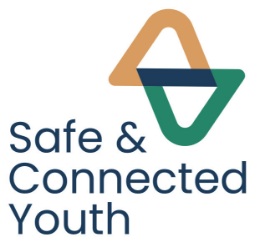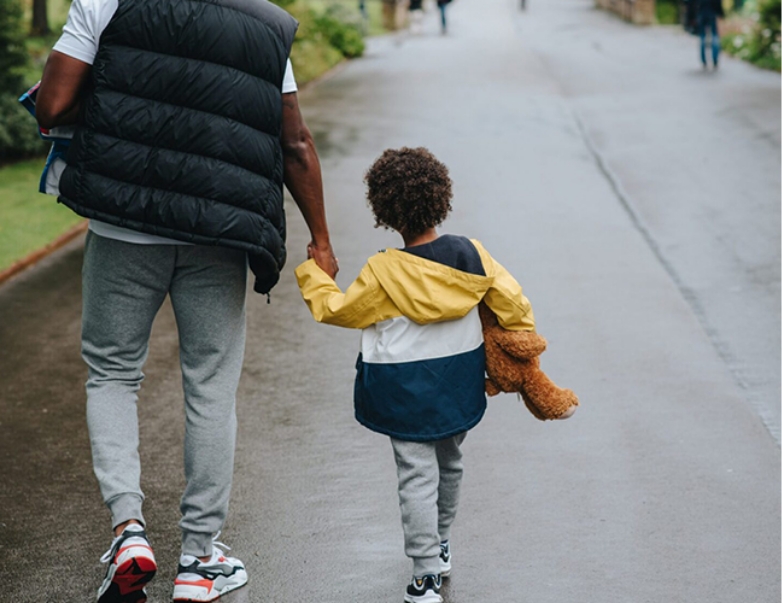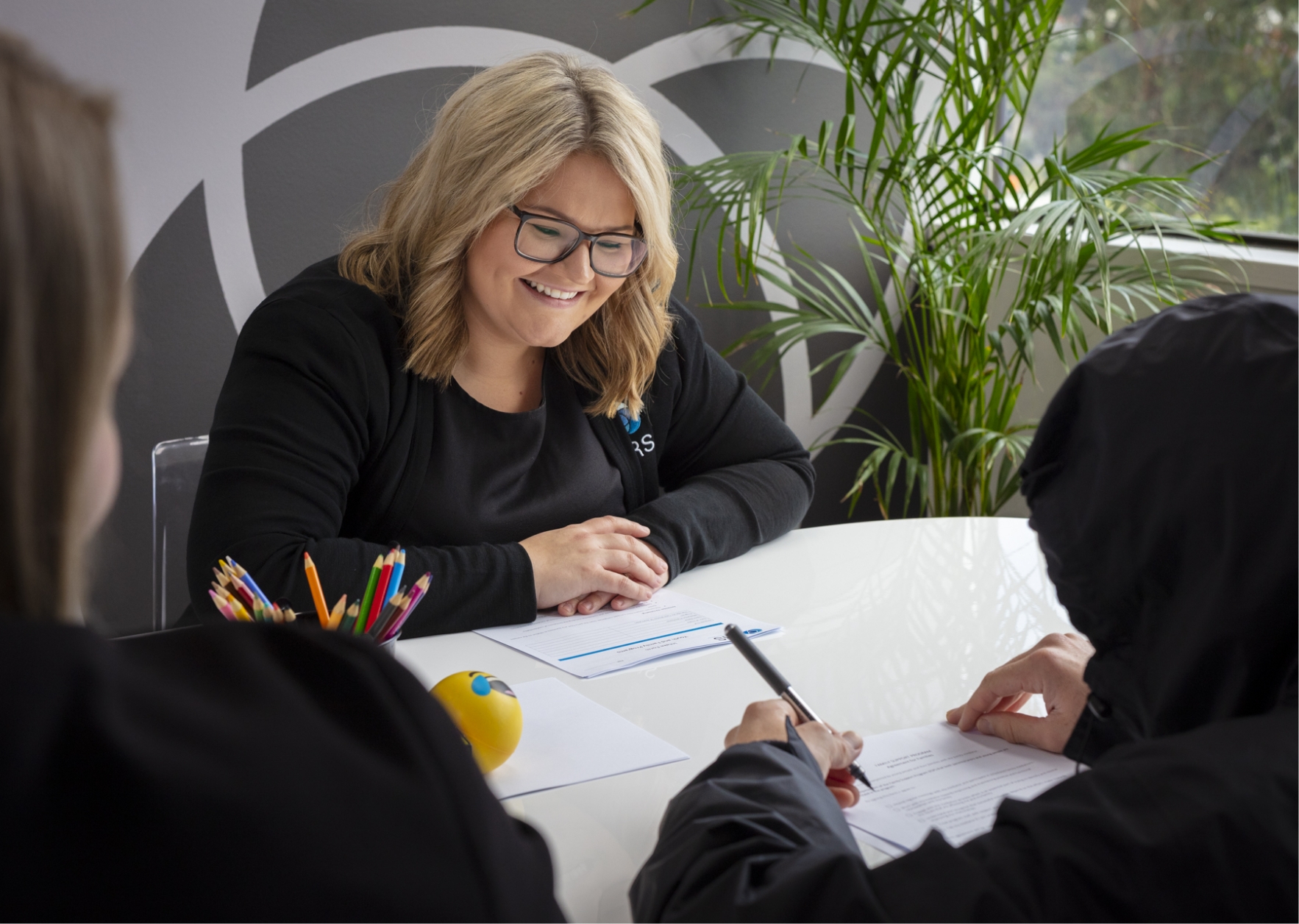ANNUAL REPORT
2022 – 2023
Scroll
![]()
Mission
To provide evidenced-based children, youth and family reunification and dispute resolution services
We Support
Children, youth, families and the community to preserve and reunify relationships
Our Values
Professional, Empowering, Accessible, Client Centered, Enabling
Our Strategic Objectives
- Organisational Clarity
- Powerful Partnerships
- Strengthening Systems
- Client Impact

A year of Rejuvenation, Expansion and Consolidation
Welcome to the 2022 – 2023 Annual Report. Conflict Resolution Service has seen a year of rejuvenation, expansion and consolidation.
Across the 2022 – 2023 year we:
-
Expanding of our children, youth and family programs with the Safe and Connected Youth program moving to a long term funded program -
Conducting a feasibility study to gain a true understanding of the inputs and outputs within the training program, and -
Focusing on health and wellbeing initiatives for staff. -
Strategic decisions were made to consolidate our fee for service programs which included ceasing the delivery of face-to-face training and other smaller programs which were driven by the recommendations in the feasibility study completed earlier in the year. -
We were successful in our grant application to launch WeCan, an online program designed to support Canberrans returning to the workforce to develop fundamental communication and negotiation skills. -
We finished the end of financial year with a rejuvenated strategic direction, a re-defining of who we are and what we do and a new set of aspirational and achievable goals.
The year has seen substantial growth with a number of new staff added to our highly skilled multidisciplinary team of therapeutic case managers, counsellors, mediators and support staff. Which enable us to extend our reach and support a higher number of clients.
Positive results were achieved with a 100% success rate in all clients remaining connected to their family within the children, youth and family program, and the Alternative Dispute Resolution Program achieved an 85% success rate in clients reaching an outcome. We were awarded the Outstanding Achievement in Youth Participation ACT Yogie Award in recognition of this work.
During the year, we presented at several conferences including:
-
National Homelessness Conference -
Family and Relationship Services Australia National Conference and -
National Youth Homelessness Conference
We continue to be humbled by the generosity of the Canberra Community and thank all those who have sponsored us to provide transport, holiday programs and access to work experience. Thank you to our two Charity Partners, Monarch Building Services Facilities Management and IKEA Canberra. I would also like to extend our appreciation to KPMG who have been working with us to develop a client matching tool which contributes to the quality improvement of services we provide.
Thank you to the highly skilled and experienced team at CRS, we spend more time at work than what we do at home, I feel privileged that I get to spend it with you all. The feedback throughout this report is a testament to how hard you all work each day to make peoples lives just that little bit better and supporting some of the most vulnerable people in our Community.
A special mention to our outgoing Board members Clive Rodger (Chair), Tom Daly (Treasurer), Matt Casey (Director), Louisa Blessington (Director), Anya Aidman (Director). It has been a privilege to work with you over the past five years to bring CRS to where it is now, you have been part of a significant time in the history of CRS and I thank you for your leadership over that time.
To our Board Chair, Mirjana Wilson and all Board members new and continuing, thank you for the support you give to me and your commitment and drive in setting the strategic direction for the next three years. I’m looking forward to working with you all to progress the strategy and continue the long-standing history CRS has built over the past 35 years.
Melissa Haley
Chief Executive Officer

The 2022-2023 year has concluded with Conflict Resolution Service (CRS) in a solid financial position, increased areas of operation, exceptionally strong leadership, and a highly skilled staff team to deliver on the strategic and operational goals. This has ensured that as a Not-For-Profit (For Purpose) nationally accredited dispute resolution service we can continue to support families, workplaces and the community to prevent, manage and resolve conflict.
In the last 12 months we said goodbye to board directors, Clive Rodger (previous Chair), Matt Casey (previous Deputy Chair), Tom Daly (previous Treasurer), Anya Aidman and Louise Blessington. These extraordinary people contributed to CRS governance activities for a significant number of years. A special mention for Clive who served three terms and was vital in the overseeing of the transition to new leadership and a more stable and viable organisation.
We welcomed new board Directors Yushi Zhang, Gerard Boundy, Torrien Lau and Narelle Sargent and consolidated the new board with two powerful strategic planning sessions held in April which was facilitated by Paul Porteous. The sessions were an opportunity to review the direction of CRS considering a changing external environment. A visioning exercise on the future activities of CRS revealed a strong focus on how it contributes something “unique” to the community. The sessions established that CRS’ focus in going forward should be both on Family Reunification and Dispute Resolution.
It is appropriate for me to mention that much of what has been achieved this year would not have been possible if CRS was not so capably led by our CEO Melissa Haley. Melissa is highly respected at CRS and amongst the many and varied stakeholders that the organisation engages with. Of note is the way in which the Safe and Connected Youth program has been implemented and now working towards consolidation. It is a program that continues to garner interest from a variety of entities, both locally and interstate.
The board is very much looking forward to what the 2023-2024 year will bring as we continue to explore opportunities and work to meet the needs of our community.
Mirjana Wilson
Board Chair

CRS had a year of continuous growth, refinement and refocusing on core strengths during Financial Year 2022-23. We have built upon the strong foundation from previous years and continued our growth trajectory. I am pleased to report that CRS has achieved a moderate surplus of $13,374 for the 2022-23 Financial Year.
The total revenue for the financial year was $2.81 million, representing a remarkable 57% growth from the previous financial year. This was driven by the continuous and successful delivery of multiple government programs, including Safe and Connected Youth Program, Family Support Program, Neighbourhood Dispute Program and Conflict Resolution Service. Despite strong top-line growth, challenges in fee-for-service programs resulted in lower-than-anticipated income in these areas. In response, we prudently managed operating expenditure, including the closure of a non-performing fee-for-service program and reduction of discretionary expenditure.
CRS redefined and refocused our efforts on our core strengths, which ensured we remain committed to our values and purposes. A primary focus was to respond to our community’s needs, particularly by providing support to youth and young people.
The Finance and Audit Committee played a pivotal role in strengthening financial management and budgeting practices. We introduced regular financial review and forecast processes and enhanced rigor in budget development, setting a strong foundation and clear direction for our future growth.
CRS has maintained a strong financial position. We achieved robust net cashflows of $43 thousand during FY22-23 and a strong net cash balance of $0.46 million as of 30 June 2023. Furthermore, our net assets have steadily grown to $0.59 million, reflecting the financial stability of our balance sheet.
I would like to express my sincere gratitude to our dedicated staff, business partners, supporters, our enthusiastic CEO, and my fellow board members for their invaluable contributions to another successful year at CRS. I am excited to be part of CRS’ journey as it continues to grow.
Yushi Zhang
Treasurer
SAFE & CONNECTED YOUTH PROGRAM
The Safe & Connected Youth Program, celebrated its first year of operation in 2023 which is a joint initiative by Conflict Resolution Service and Marymead CatholicCare Canberra Goulburn. This program embodies a holistic approach to support the well-being and security of children, youth and family in our community.
A distinguishing feature of the Safe and Connected Youth Program is its trauma-informed approach, offering therapeutic interventions that acknowledge and address the emotional and psychological needs of the youth and families engaged in the program.
The ultimate goal is to empower individuals to realise their full potential, reducing family conflict and enhancing family functioning and well-being. Importantly, the Program also plays a pivotal role in mitigating the risk of youth homelessness.


of young people remained connected to family
0
%
It was helpful that staff were present at the school meeting to advocate for our child to re-engage in education. Sia felt supported and as a result has accepted similar support with advocacy for younger children and their education.
Client: Maddy (14) & Damien (Brother – Carer)
The family were referred to the program by Child and Youth Protection Services (CYPS) after Maddy had been found sleeping on a park bench and become estranged from her older adult brother, who had full-time care responsibilities after the passing of their mother.
Maddy presented with complex comorbidity, including periods of suicidal thoughts and self-harming behaviors. Maddy had been disengaged from education for three years and was involved in a peer group well known to police. Maddy had chosen to live away from Damien due to the high level of conflict that occurred between them. Maddy felt Damien didn’t understand her or care about her needs, whilst Damien only wanted what was best for her and was hypervigilant in his attempt to keep Maddy safe. Damien explained he knew his approach was tough, but he was concerned Maddy was at risk of being groomed by older adolescents and wanted to protect her.
Maddy was provided support through the Safe and Connected Youth program which allowed Maddy a supportive environment to rebuild her relationship with Damien whilst also providing safety and the support of a therapeutic team to meet the family’s support needs.
The family co-created a case plan focusing on key areas:
- Rebuilding the relationship and repairing the rupture between the family
- Learn new communication strategies to hear and be heard
- Improved physical, emotional and mental wellbeing of family
- Safe and secure housing for Maddy
The program supported Maddy to regularly engage with Child and Adolescent Mental Health Services (CAMHS), leading to an increase in Maddy’s emotional regulation and capacity. This allowed her to engage with the program’s family counsellor and joint counselling sessions with Damien. In these sessions the family were able to work through the historical trauma the family had experienced and heal together as a family.
After a number of months, Maddy began transitioning home, staying between Ruby’s and Damien’s. The family were able to implement the strategies and support offered through the program and test them in reality.
Since being supported by the Safe and Connected Youth program, Damien and Maddy have strengthened their relationship and their approaches to sharing their feelings and needs. Conflict has significantly reduced and Maddy has returned home to live with Damien. Maddy has reengaged with education, attending a vocational course through the week. The family report an increase in their overall happiness and wellbeing, and both Maddy and Damien are continuing to engage in regular mental health support.
The flexibility in the delivery of counselling sessions allowed my son to engage in therapy better than I have witnessed him engage with any other service. My son’s positive engagement with Ruby’s family counselling has led to him engaging with mental health services on a regular basis.
Client: Griffin (15) & Joyce (Mum)
Griffin and his mother sought support from the program due to complex family dynamics and mental health concerns. Griffin faced challenges related to his neurodiversity and gender identity within the family context. He had a history of exposure to family violence and was struggling with school attendance and suicidal ideation. Joyce expressed difficulty in supporting Griffin’s gender journey and felt overwhelmed by her role as the primary caregiver.
Despite these challenges, both Griffin and Joyce actively engaged with the Safe and Connected Youth program. Griffin attended regular appointments, and developed a strong therapeutic alliance with his program practitioners. With their support Griffin was able to identify and address his mental health concerns by connecting with external mental health supports. The program employed a strength-based approach to understand Griffin’s perspectives and concerns, built trust over time and facilitated conversations on gender identity. This empowered Griffin to make informed decisions about his journey.
The program worked with Griffin to improve communication with Joyce, helping him adjust his expectations and engage with her more respectfully. Joyce participated in coaching sessions to understand and respond empathetically to Griffin’s behaviour. The program supported the family to reinforce the importance of preserving the family unit and provided tools for stress management and skill development.
As a result of the comprehensive support provided by the program Griffin reported an improved sense of self and greater emotional literacy. Joyce developed trust for services, something that had been difficult due to previous experiences. Griffin and Joyce have made significant progress in addressing their family dynamics, mental health, and gender-related issues which has eventuated in their attendance at two family mediations. Griffin and Joyce have utilised these family mediations to better understand each other’s needs and set a solid foundation for better communication.

of young people remained at home
0
%

FAMILY SUPPORT PROGRAM
The Family Support Program works with individuals and their families confronting the possibility of youth homelessness, often arising from tumultuous family dynamics. This Program adopts a robust, evidence-based approach that places the family unit at its core, recognising the significance of addressing the collective needs of the family, rather than focusing solely on the young person in distress.
The Program forges close alliances with schools and other youth- and family-centric agencies, ensuring seamless access to outreach services. The Program stands as a beacon of hope for young individuals and families grappling with housing instability, offering tailored guidance and resources to mend family bonds, promote well-being, and ultimately reduce the risk of youth homelessness.

Client: Sandy (14) & Jana (Mum)
Sandy and Jana were referred to the program by Sandy’s school following concerns regarding conflict at home and the affect it was having on Sandy’s wellbeing.
An escalation between Jana and Sandy had occurred two years prior, with neither one being able to move forward or find closure from the incident. This had resulted in a complete breakdown of communication, trust and safety for the family. Both expressed they wanted to move past the incident but didn’t know how.
The family shared the goals of:
- Reconnecting and re-establishing a relationship with one another
- Communicating with each other in a healthy and conducive manner
- Improving the trust in the relationship
The family engaged in a number of individual conflict and communication coaching sessions where they explored the dynamics and traits of their conflict; were equipped with techniques and strategies to communicate effectively; and developed a perspective of empathy and compassion for one another. The family engaged in multiple family mediation sessions. This cathartic experience allowed them to express the impact the last few years of disconnection had on them both, whilst hearing how each other were affected. They worked together to resolve these emotions and created a number of strength-based agreements on how they would function as a family moving forward.
Sandy and Jana have both embedded the strategies learnt through their engagement in the program, resulting in an improvement in family connection and trust. Conflict has significantly decreased in the family, with both Jana and Sandy reporting they feel confident and able to deescalate and repair any future rupture.
Coping skills provided by the program have enabled David to feel like he’s allowed to have emotions and feel more confident in expressing them when he’s not feeling ok

of young people remained at home
0
%
Client: Jack (17) & Justin (Dad)
Jack had become estranged from his father following a series of escalations at home. Jack self-presented to the program, requesting support to mend the relationship with his father. At the time, Jack had not spoken to his father for over a month.
Jack felt the way his dad communicated with him was disrespectful and there was a difference in expectations around how they needed to act towards one another. Justin expressed he often felt exhausted due to being the sole income earner and working a six-day work week. Justin acknowledged that his approach with Jack could be improved, but felt Jack also had a role to play in the conflict.
Justin and Jack identified the following goals for engaging in the program:
- Begin to re-establish communication
- Increase capacity for emotional regulation
- Develop strategies to resolve conflict within the family home
- Explore Jack returning home
The program employed a number of methods to support the family to fulfil their engagement goals. Jack was supported through assertive outreach with staff meeting Jack in an environment that works best for him. Home visits were facilitated outside of business hours, allowing for Justin to engage with the program around his work schedule.
Through engaging in family mediation, Jack and Justin were able to express their perspectives in a safe and impartial environment. This space allowed Justin and Jack to listen to each other, and feel listened to. They engaged in a number of mediation session, each time building off the progress of the previous mediation. The staged approach enabled time in between sessions for reflection. They both attended the following sessions with a greater sense of understanding and ideas on how to move forward. During the final mediation, Jack and Justin both felt ready for Jack to return home and developed a transition plan for him to start staying with Justin four nights a week.
Since their involvement in the program, communication has been restored and Jack has returned home. Justin has set aside specific times throughout the week to do something fun with Jack which has improved the overall wellbeing of the family and strengthened their relationship and connection.
of young people remained connected to family
0
%

DISPUTE RESOLUTION SERVICES
CRS facilitates high level, process driven and professional mediations for a range of matters including:
- Family Disputes
- Separation/Care Arrangements
- Property/ Financial Settlements
- Court Referred Matters
- Police Referred Matters
- Workplace Disputes
- Community Disputes
Alternative dispute resolution process is less informal, less time consuming and less costly than seeking resolutions to disagreements in a formal setting such as a court or tribunal process. Acknowledging that experiencing and living with conflict can be extremely difficult, we aim to provide a service that reduces the stress of dealing with and overcoming conflict by talking through the issues and allowing parties to collaboratively make agreements about how they can move forward. This process is facilitated for a wide range of disputes for any situation where conflict is experienced in our day-to-day lives.

Such a great program, we need this across Australia”; “It’s so important to keep young people at home and we need more programs like yours.
Department of Education – 5 x students
A local High School contacted CRS seeking assistance regarding a longstanding dispute between five students.
The friendship group started to fracture due to an inability for the students to respectfully navigate the friendship changes throughout the years. Issues built up and remained unresolved, friendship alliances shifted, and by the time the group approached year 10, they had divided into two distinct friendship groups.
A range of behaviours toward each other over the years had resulted in emotional harm to the students, including bullying, verbal abuse, name calling and physical harassment in the playground like tripping and pushing. The ongoing conflict was significantly impacting the student’s overall wellbeing and their ability to concentrate on their education. The dispute was also starting to adversely impact other students and staff members.
The school attempted to resolve their dispute by using different methods, including a variety of restorative justice practices however, as the discord between the students continued to evolve, the school determined that an external mediation service would benefit the parties.
Mediation sessions provided opportunities for the five students to discuss the history of their conflict and have their voice heard. Throughout the mediation, students were encouraged to consider the impact of their actions on others and start to consider practical options for how they could all move forward.
The mediation also highlighted the students’ shared goals, aimed at trying to move on from their long-term conflict so they could attend school in peace, feeling safe and supported to receive their year 10 school certificate. The students benefited from the conversation between them which acknowledged that while they had many differences over the years, they all ultimately wanted the same thing; to finish year 10 and feel safe at school.
Parents and students were offered ongoing support following the mediation to assist with building capacity around communication. As a result, all five students achieved their goal of completing their year 10 studies.
The approach was very helpful. I like how you (the mediator) texted prior to calling and checking if now was a good time to talk. I also like how he laid out in the text what he was going to talk about, really helpful.
Magistrates Court
Samantha and Matthew were referred to CRS by the ACT Magistrates court to mediate the matter of an interim Personal Protection Order (PPO).
Samantha applied for the PPO after an incident in which Paul was verbally aggressive toward her son and her husband during a soccer match. Samantha sought the order to ensure the ongoing safety of her family at the soccer field.
Matthew felt the PPO was unnecessary and frivolous, admitting that there were heated words shared between himself and Samantha’s husband, but they had quickly ended their argument and shaken hands.
Each party expressed a need to feel safe in each other’s presence and a willingness to resolve the matter amicably, given they were guaranteed to see each other throughout the remainder of the 2023 soccer season. Rather than proceeding directly through the court system for an outcome of the order, Samantha and Matthew decided to attend mediation with CRS.
Matthew identified that as a coach of one of the teams, he wanted to set boundaries with Samantha to ensure no further frivolous claims were made against him in the future.
During mediation, parties were afforded the time and space to speak about the impact the dispute was having on themselves and their families. Samantha and Matthew explored suitable options to move toward an agreeable outcome which ensured each of the party’s needs were addressed with a focus on feeling safe at future games.
As a result of their conversation in mediation and noting their ability to make agreements on how they would behave toward each other moving forward, Matthew and Samantha agreed to enter into undertakings.
By reaching an agreement of undertakings, Matthew and Samanatha did not have to continue through the stressful and lengthy court process for a determination of the order. Both parties were able to ensure the ongoing safety of themselves and their families, and Matthew was able to continue coaching his junior soccer team for the remainder of the soccer season. Each party was able to retain their connection to their sporting communities, in which both Samantha and Matthew identified as being vital for their family’s ongoing social connectedness.
I think the catch ups prior were set up well and were very thorough and thought out. I felt very comfortable and felt my thoughts and needs were being met.

FAMILY DISPUTE RESOLUTION PROGRAM (FDR)
CRS is one of the few not for profit services in Canberra that provides a Family Dispute Resolution Program for separated families with children from 0 to 16. FDR enables families to settle family separation matters away from the judicial system, including care arrangements and property settlements with a focus on the best interests of children. The Program includes providing Child Inclusive Practice reports on the impact family separation is having on children and young people.
WORK EDUCATION COMMUNICATION AND NEGOTIATION PROGRAM (WE CAN)
An online program designed by CRS to support Canberrans returning to the workforce to develop fundamental communication and negotiation skills. The program offers self-paced online learning wherein participants will explore and develop skills in communication, collaboration, negotiation, and conflict resolution as core competencies necessary for sustainable employability.
MEDIATION SERVICES FOR THE MAGISTRATES COURT
We divert personal protection matters and family violence matters away from the courts (where appropriate) and into an environment that works through the conflict to achieve a resolution that supports individuals in the long-term
CONFLICT MANAGEMENT WITHIN HOUSING ACT PROPERTIES
We work with Housing ACT to reduce conflict with tenants and the department and within tenant complexes.
DISPUTE RESOLUTION FOR ACT EDUCATION
CRS work with local schools to resolve any type of conflict within the education ecosystem.
Really good experience, my voice was heard in intake, and the practitioner was very kind.
